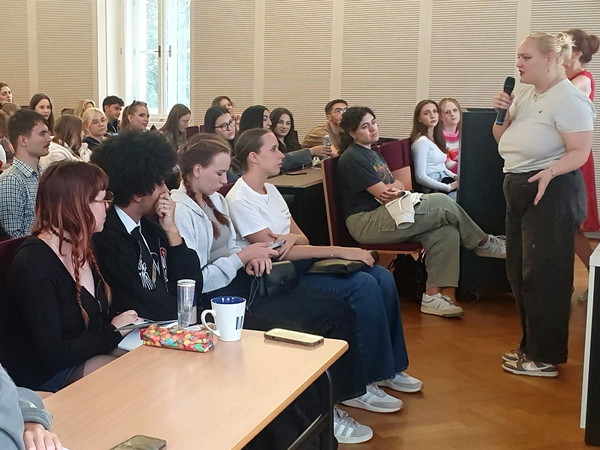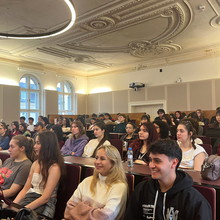On Wednesday afternoon, the Faculty of Arts held a meeting with new international students who are about to begin their one- or two-semester study stays. At the start of the academic year, this is a large group of students arriving not only from Europe but also from other parts of the world.
“The aim of the meeting was to welcome students to the faculty and give them confidence at the start of their study stay, a time when everything may seem unfamiliar and unsettling. We consider this form of welcome essential, and we believe that students appreciated the opportunity to meet faculty representatives face to face and will feel all the more welcome at the faculty,” said Simona Černá, coordinator for incoming mobilities at the Faculty of Arts, Palacký University.
As for the Erasmus programme, the largest group of students comes from Spain. Other countries represented include France, Slovakia, Poland, Turkey, and more.
This year, many students from Ukraine are also participating, thanks to funding from the Erasmus project – the so-called International Credit Mobility. Through the same programme, several students from the Republic of Armenia and from Cape Verde will also begin their studies. The largest group of non-European students comes from Asia, primarily from the Republic of Korea, but also from Japan and, for example, Kazakhstan.

